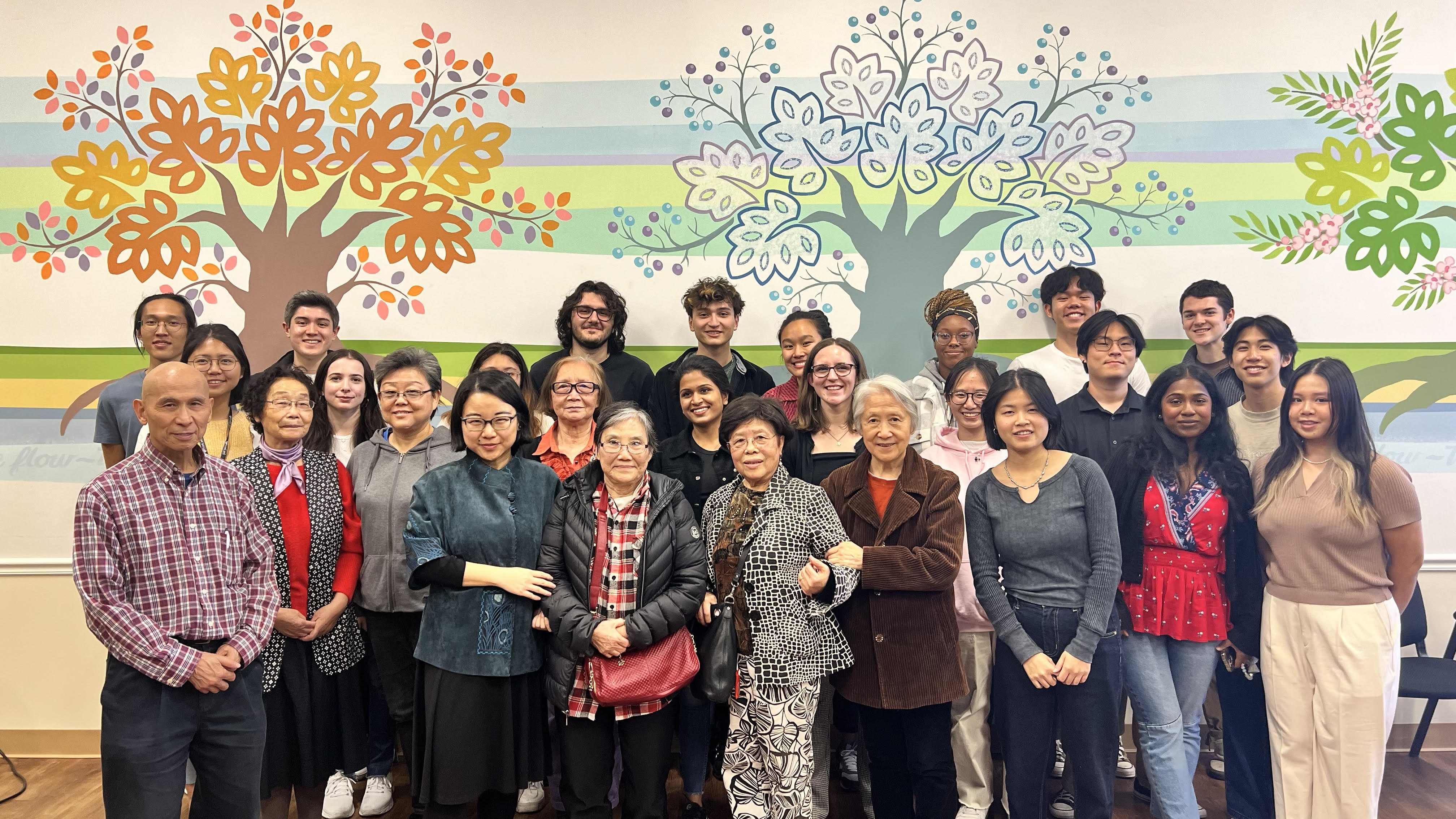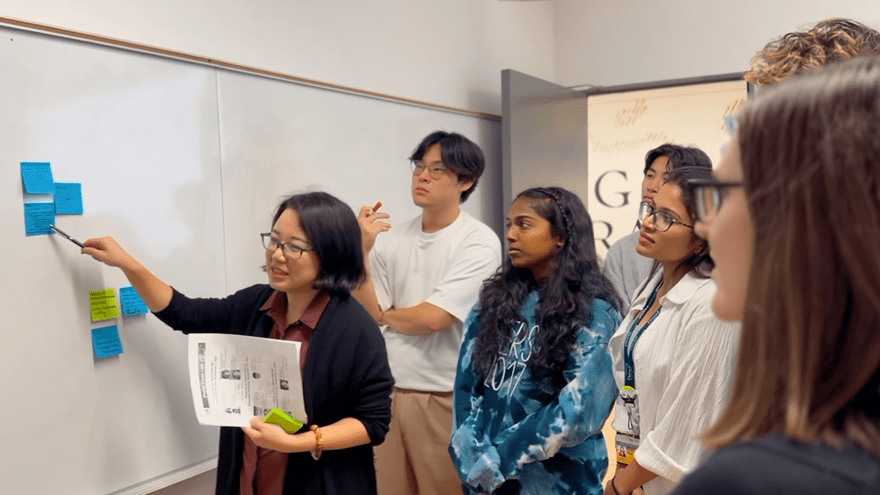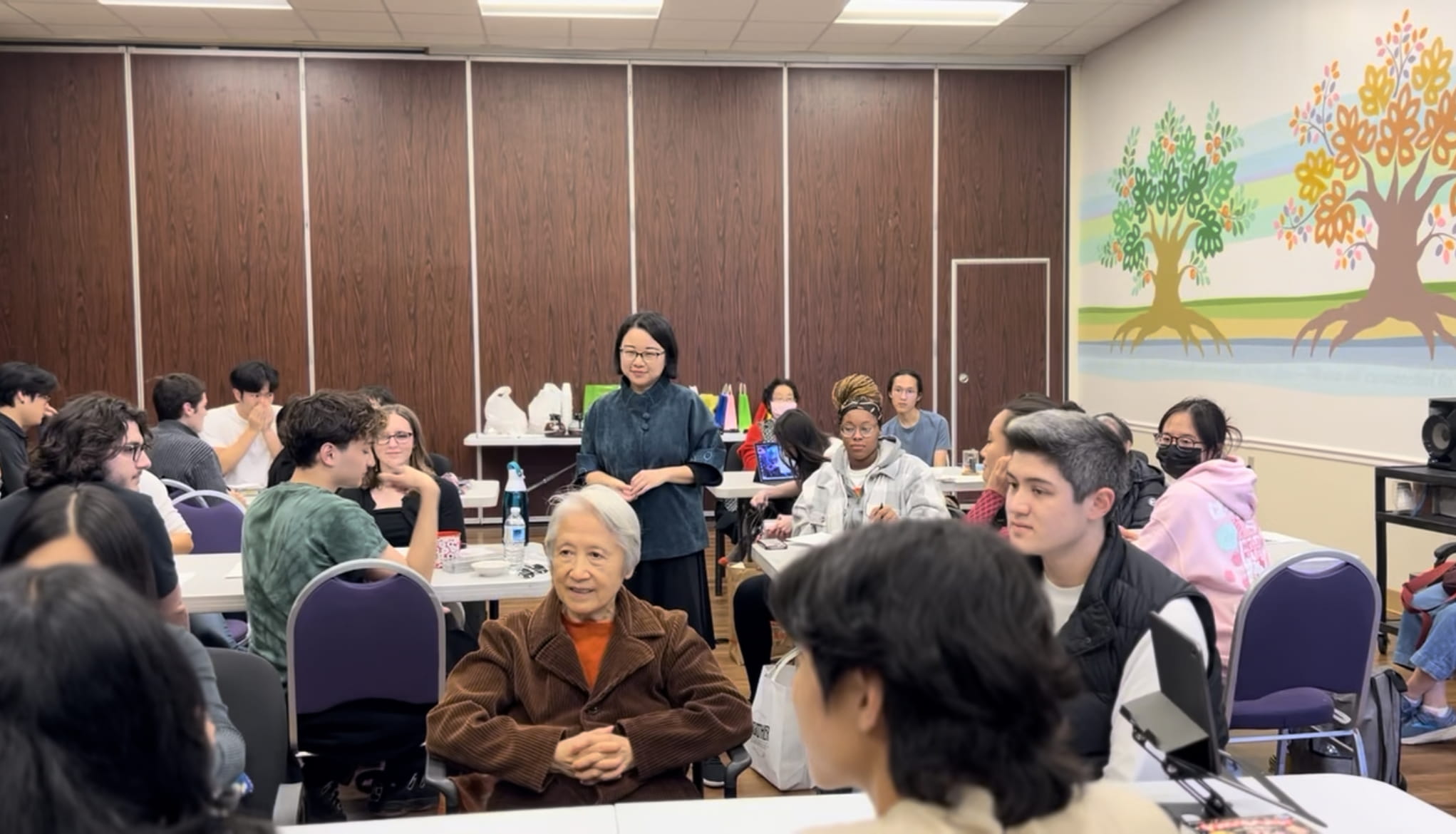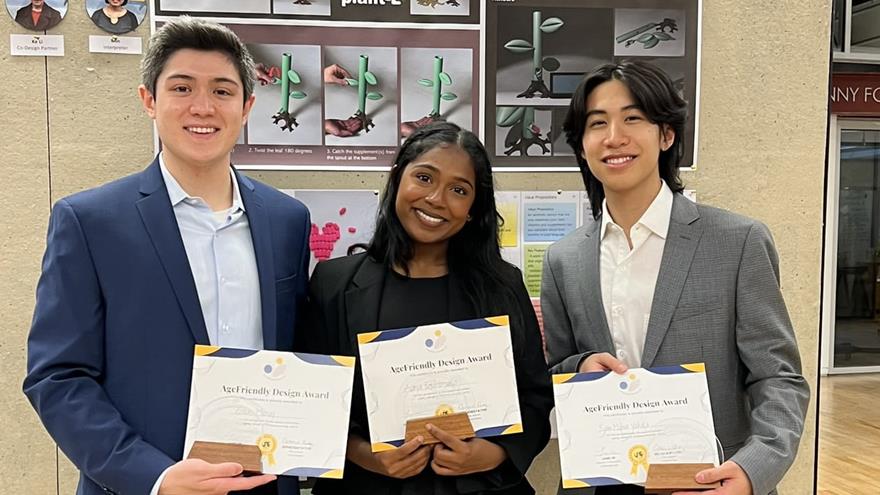Meet June He, Recipient of the Inaugural Provost Award for Pedagogical Innovation
By Natalie Kostelni

When June He joined Drexel’s Westphal College of Media Arts & Design at the start of the 2021-2022 academic year, she brought years of industry experience to her new role as assistant professor of product design. He drew from her prior work using empathic design in the eyewear, medical and fashion industries to create a series of project-based learning courses focused on Aging & Design. The courses use interdisciplinary collaborations and community partnerships to engage students in designing human-centered solutions for the elderly population in Philadelphia’s Asian immigrant communities.

An initial Aging & Design course He launched in 2022 spawned a second course called Creating Age-Friendly Innovations funded by an Age-Friendly Drexel Pilot Grant. He landed a $30,000 VentureWell Course & Program Grant to support sequential courses that began in the fall of 2023 and will run through 2026. Each of He’s courses builds on the other and incorporates suggestions made by students and interactions with partners. In 2023, He founded Empathic CoDesign Lab to support design projects that increase awareness of the voices and needs of marginalized communities and create innovative solutions with them.
In 2023, He was among four Drexel faculty recognized for implementing outstanding innovations in teaching and learning with the inaugural Provost Award for Pedagogical Innovation. “Pedagogical innovation refers to the development of new ways of teaching, delivering curricula, interdisciplinary methods, or interfacing with the community or the workforce to create and implement novel courses and learning experiences,” according to the award description.
Relationship-building with community organizations and nonprofit partners has been a key component of He’s course series. She has connected with the Southeast Asian Mutual Assistance Association Coalition (SEAMAAC), Philadelphia Chinatown Development Corp., and the Philadelphia Senior Center, among others. He also involved interdisciplinary faculty including those at the College of Nursing and Health Professions and the Close School of Entrepreneurship. The courses have attracted students from diverse majors including product design, architecture, urban planning, biomedical engineering, economics, chemistry and others.
“By connecting older adults from Asian communities with students studying a range of disciplines, we have created an intergenerational and cross-cultural experience that benefits the older adults and students. They each learn from each other,” He said.

In this interview, He shared her thoughts about the course series and her approach to teaching.
Is there one word that serves as the defining principle of the courses?
Empathy. I come from a design perspective and my goal is for my students to understand design not from their own assumptions, but from the perspective of the people they are designing with so they learn to design with cause.
What was the genesis for the course series?
My neighbor is a grandma from China and when Hurrican Ida hit in 2021, every house in our neighborhood suffered. We both had waist-high water in our basements. My neighbor could not speak English very well so I helped her sort through documents to apply for FEMA relief. At that time, it was also during the pandemic and she was scared to venture outside because of an increase in anti-Asian discrimination. She and other older adults in the Asian community became isolated. I thought, as a design educator, how might I create an educational experience to include and support them? How might we increase students’ awareness and understanding of inclusive design in the real world?
The course involves pairing students directly with older immigrants in the Asian community. Why is this important?
I believe community-based co-design is a great solution to transcend cultural and language barriers. I want students to step outside of their own comfort zone to work with older people, keep an open mind, and to understand older people. I want students to conquer age, cultural and language barriers and to empathize and look at things from the perspective of these older immigrants. After students take my course, I hope they have learned how to conquer all kinds of barriers, to understand another person, to cultivate empathy and to design with them instead of for them.
With your fall 2023 course Aging, Design & Entrepreneurship, you worked with the Close School of Entrepreneurship and College of Nursing and Health Professions. Why did you take a multidisciplinary approach?
It helps students in many ways. For example, we went to the Health Sciences Building so students could use the VR simulation lab and it allowed them to experience how older adults live every day. Some students became very emotional from this VR experience because they began to realize people may not understand what it is like to live as an older adult. When students empathize with the way an older adult lives, they have strong emotions to draw from when they design to solve for everyday problems and emotional struggles. Working with Close School helps our students to further develop their innovative concepts into mature products.
Why focus on entrepreneurship?
I would like to have more students interested in creating product solutions that can impact older adults in their aging communities. I want to make sure our course is not only a course but one that generates real impact with the community, gives knowledge and empowers the older adults as well.

Have students come up with any products that showed promise?
In the fall course, five student teams pitched their concepts to a panel of judges. The team that won the Age Friendly Design Award created a digital vitamin dispenser to help enhance the health literacy for older users in the immigrant community. The product was designed like a tree with leaves that rotate to dispense vitamins. Older adults love nature and health, and the dispenser is decorative while providing them with an engaging way to take vitamins and learn about their health benefits. Currently, the three students on the team are working with Chuck Sacco, vice dean at the Close School, and Baiada Institute for Entrepreneurship to further develop the product.
How have students reacted to these courses?
Feedback has been overwhelmingly positive. The older adults asked me when they could participate in the next workshops and one told us it was among the happiest moments in her life because she had been so isolated during the pandemic.
Based on mixed method research before and after the courses, students showed transformative learning outcomes through the courses, including a positive change of perspective towards aging and immigrants by “learning how to transcend cultural, lingual, and technical barriers to design something simple and impactful,” according to one student.
Another student said it ignited a new sense of motivation in their coursework, and another said they learned the importance of inviting different perspectives into the work they do. I had one student tell me this class taught them more about life and the world than they ever would have imagined. The main reason I have been running this course every year is the support and encouragement from my students and older adults. When I see their smiles towards each other in the workshops, I know I am doing something right.